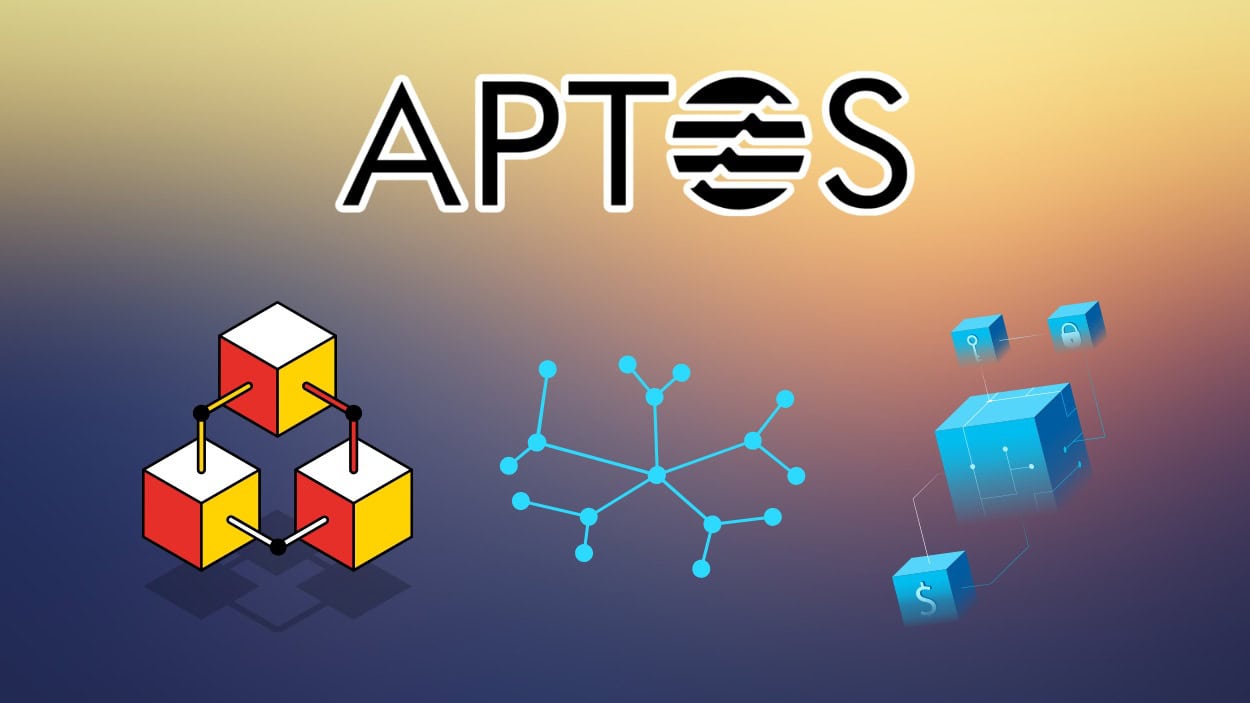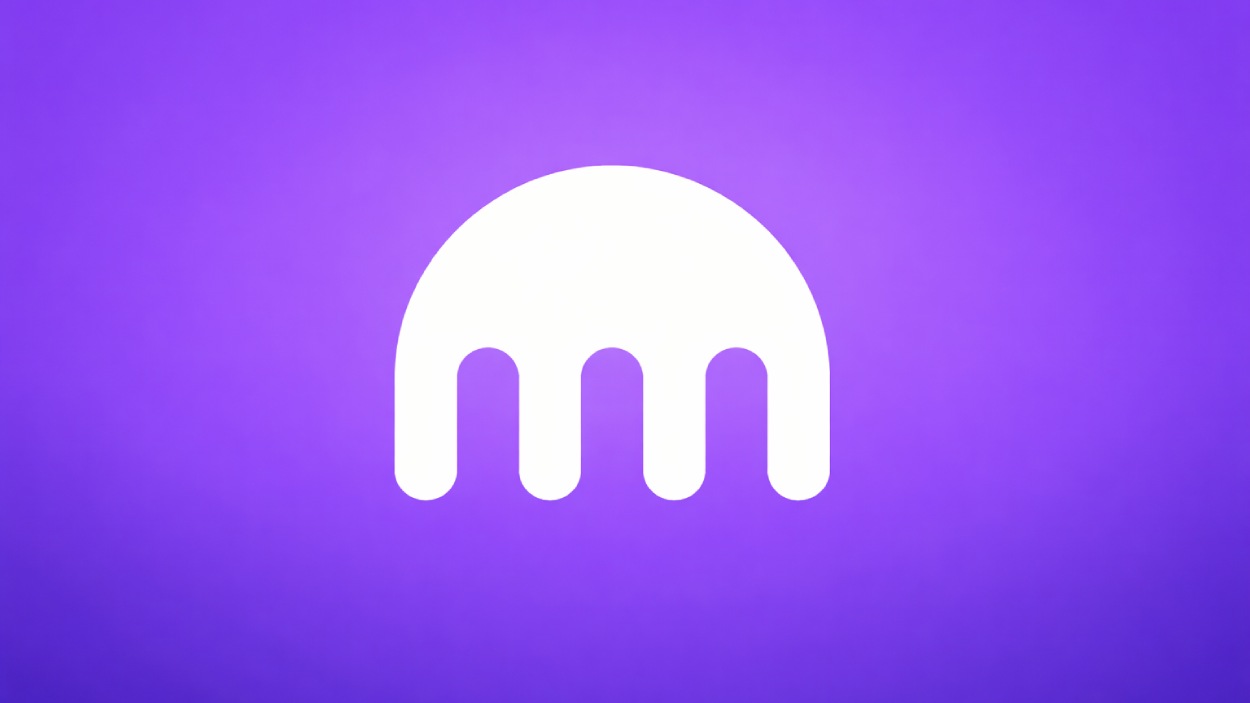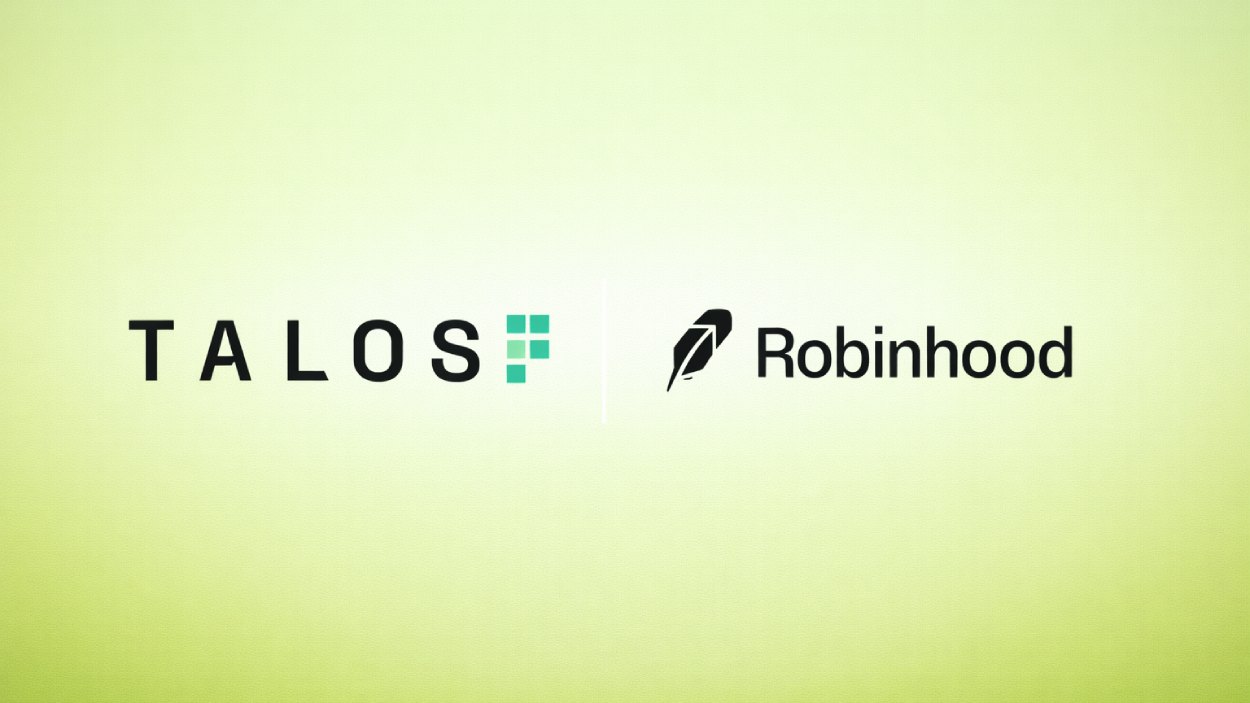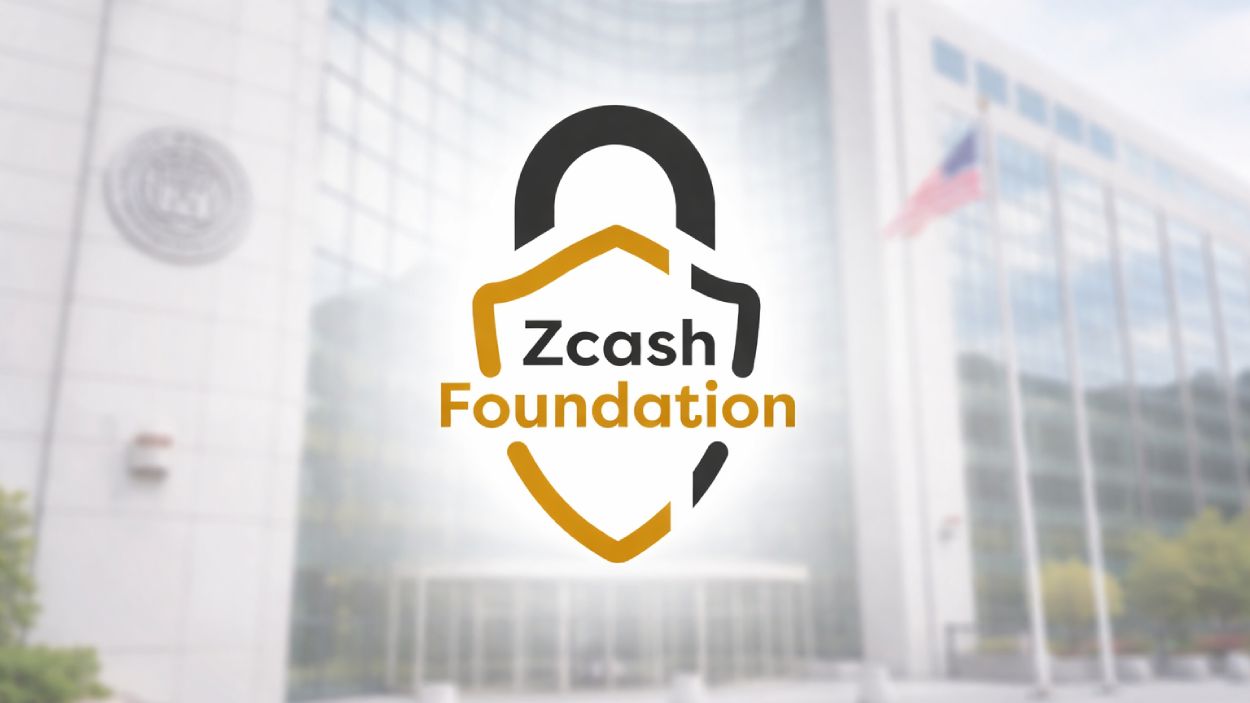In the ever-evolving world of software development, GitHub continues to stand as a vital platform, driving innovation, collaboration, and code-sharing on a global scale. Founded in 2008, GitHub has transformed from a small startup into a key pillar of the development ecosystem, hosting millions of repositories and empowering developers worldwide. Understanding the trends and data surrounding GitHub’s growth, usage, and impact becomes essential for businesses and developers alike. Let’s dive into the key statistics shaping GitHub’s present and future landscape.
Editor’s Choice
- Over 180 million developers are now using GitHub, with 36 million new additions last year.
- GitHub now hosts over 630 million repositories, with more than 121 million new projects created.
- GitHub Sponsors saw a 80% increase in corporate sponsorships.
- GitHub Copilot is utilized by over 20 million developers.
- GitHub Marketplace offers over 1,500 tools for automation.
- GitHub Actions runs over 5 million workflows daily, up 40% year-over-year.
Recent Developments
- GitHub Copilot Chat is available across GitHub.com, mobile, VS Code, Eclipse, and Xcode with slash commands.
- A new AI coding agent introduced at Microsoft Build 2025 autonomously fixes bugs and adds features.
- GitHub Universe 2025 unveiled multi-model Copilot support, including GPT-4o, Claude 3.5, and Gemini 1.5 Pro.
- GitHub Projects adoption surged by 25%.
- Secret Scanning partners with over 70 service providers to detect API keys.
- GraphQL API enhancements include repository custom properties and new fields like viewerCanUnminimize.
- GitHub Sponsors for Teams expanded with over $50 million contributed across 120+ regions.
Top Global Contributors to Generative AI Projects on GitHub
- United States led with ~90,000 contributors.
- India ranked second with ~35,000 contributors.
- Hong Kong SAR had ~25,000 contributors.
- China recorded ~22,000 contributors.
- Germany contributed ~20,000 developers.
- Japan had ~17,000 contributors.
- United Kingdom reached ~15,000 contributors.
- Singapore showed ~11,000 contributors.
- Canada had ~9,000 contributors.
- France closed with ~7,000 contributors.
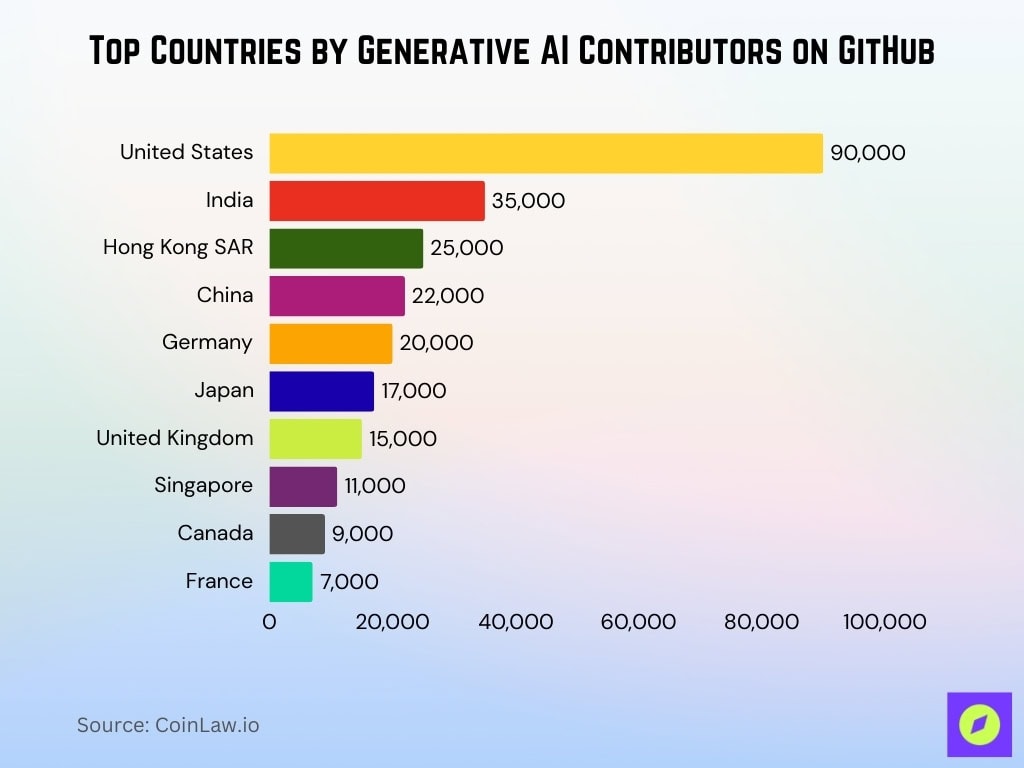
User Growth and Global Distribution
- India’s developer base grew 30% to 20 million developers.
- North America holds 29% of GitHub’s total active developers.
- Asia-Pacific saw 38% user growth, led by Vietnam, Indonesia, and Bangladesh.
- Europe maintains over 27 million developers.
- Latin America recorded 22% increase in new repositories from Brazil and Mexico.
- Nigeria reached 1.4 million developers (31% YoY growth), South Africa 800,000 (26% increase), Kenya 500,000 (36% increase).
- 83% of the top 10,000 repositories are maintained by non-US developers.
GitHub Website Traffic Demographics by Age
- 25–34 age group dominates with 37.0% of total website visitors.
- 18–24 users contribute 28.8% of GitHub’s web traffic.
- 35–44 age group represents 17.6% of the audience.
- 45–54 users account for 9.4% of platform visitors.
- 55–64 age group comprises 4.3% of the total traffic.
- Visitors 65+ make up 2.9% of GitHub’s web traffic.
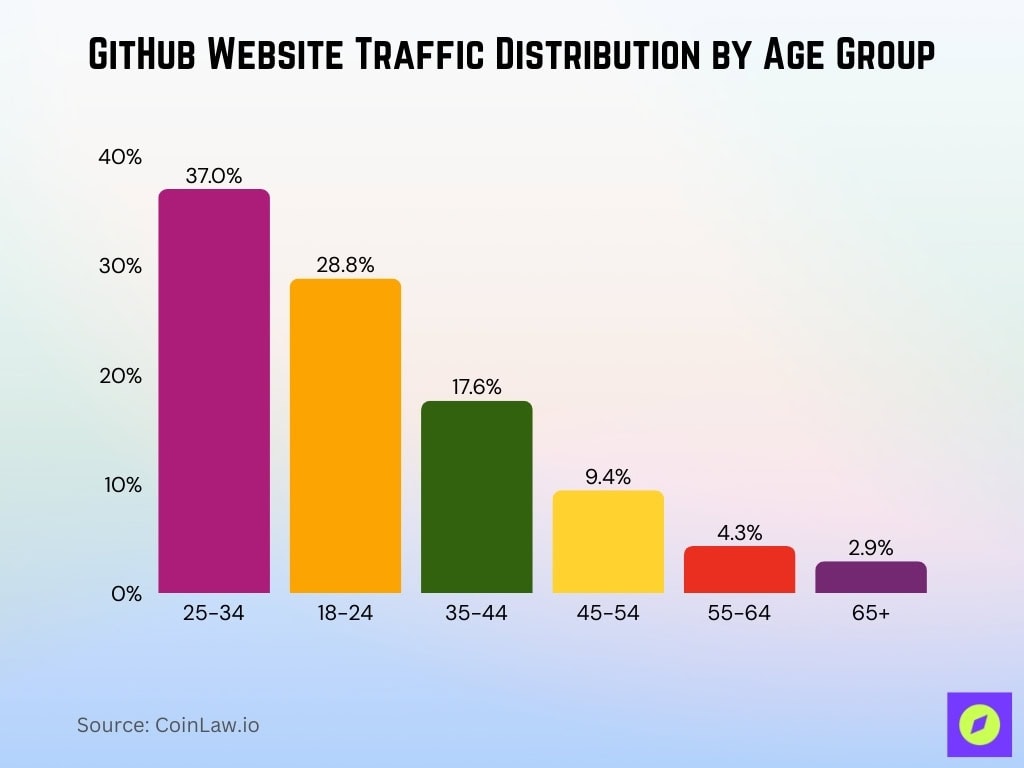
GitHub Enterprise and Monetization
- GitHub Enterprise is adopted by 92% of Fortune 100 companies.
- GitHub Marketplace processed $35 million in developer transactions.
- GitHub Sponsors program facilitated $45 million across 110+ regions.
- GitHub Advanced Security unbundled with Secret Protection at $21/month, Code Security at $32/month per committer.
- GitHub Enterprise Server 3.14 launched with enhanced AI security features.
- 75% growth in GitHub Actions paid marketplace integrations.
- GitHub Premium Support serves 85% of Fortune 500 customers.
- Corporate sponsorships via Sponsors increased 40% year-over-year.
Most Popular GitHub Repositories
- freeCodeCamp leads with 385,000 stars for its comprehensive coding curriculum.
- TensorFlow has 195,000 stars as the leading AI/ML framework.
- Vue.js surpassed 215,000 stars for UI development popularity.
- React boasts 240,000 stars in front-end development.
- Kubernetes achieved 120,000 stars for container orchestration.
- Linux amassed 155,000 stars as a premier open-source OS.
- Django reached 85,000 stars for Python web development.
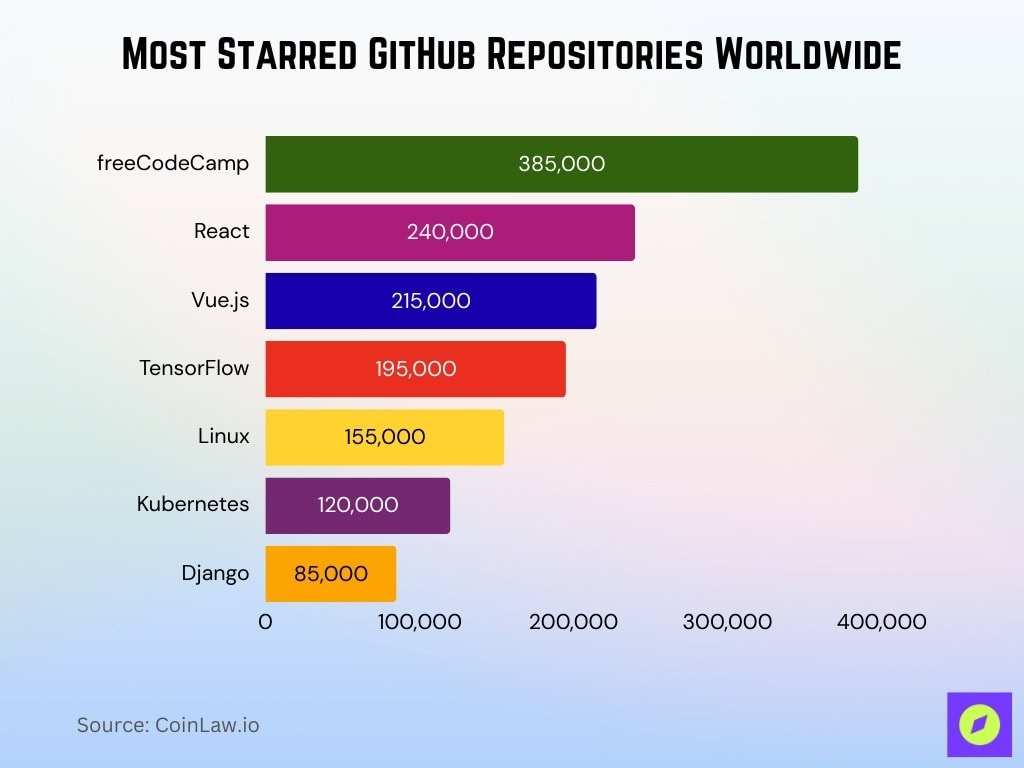
Top Programming Languages on GitHub
- Python leads with 38% share in AI, data science, and automation.
- JavaScript holds 32% dominance in web development.
- TypeScript surged to 1st overall, 28% growth rate.
- Java secures 4th with 22% enterprise backend usage.
- C++ ranks 5th for performance-critical applications.
- Go (Golang) at 6th with 25% cloud-native growth.
- Rust enters 7th for memory-safe systems programming.
- C# holds 8th in Unity game development.
- PHP remains the 9th most popular, powering 75% of websites.
- Shell scripting 10th essential for DevOps automation.
Most Leaked Secrets on GitHub
- MongoDB credentials comprise 21% of all exposed secrets in public repositories.
- AWS IAM keys account for 12% of total leaked credentials.
- Google API keys represent 9% of detected secret exposures.
- Slack webhooks contribute 6% of all leaked secrets.
- Azure AD API keys make up 5% of total exposures.
- Telegram bot tokens account for 4.5% of leaked credentials.
- PostgreSQL credentials represent 4% of secret leaks.
- OpenAI API keys comprise 3.5% of total exposures.
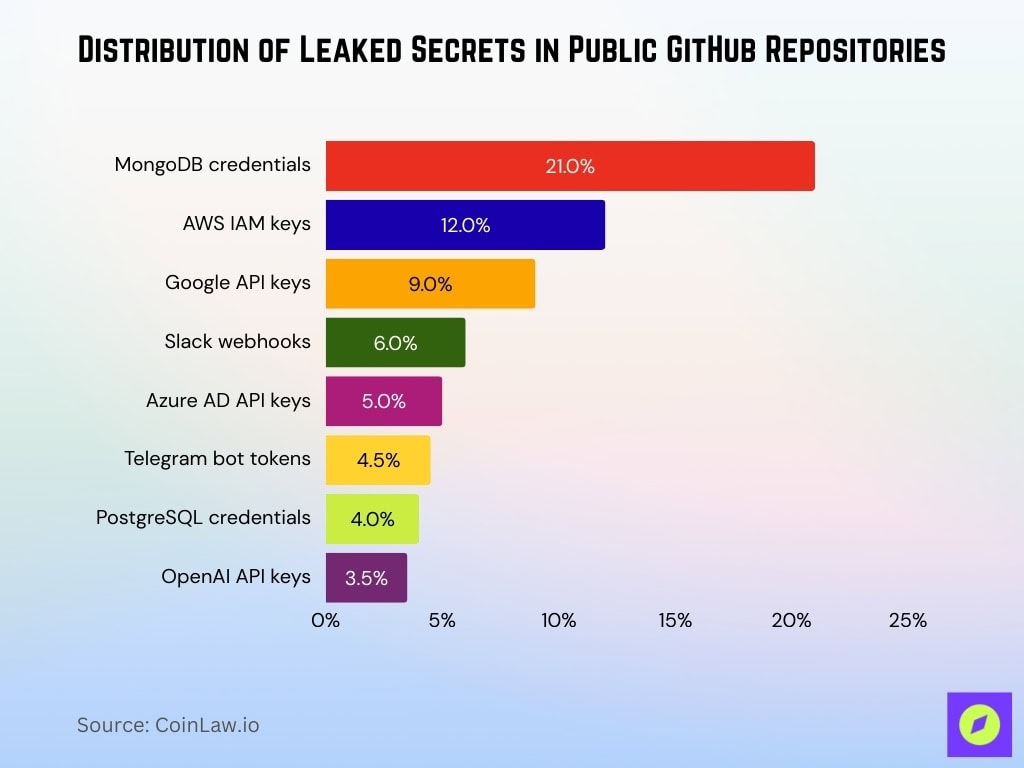
GitHub Actions and CI/CD Trends
- GitHub Actions executes over 6 million workflows daily.
- Containerization and Kubernetes integration rose 45%.
- Self-hosted runners usage increased 38%.
- GitHub Actions Marketplace features over 22,000 actions.
- Continuous deployment grew 55% with real-time releases.
- Docker and Kubernetes workflows hit 1.2 million, up 28%.
- Deployment time was reduced 32% on average for enterprises.
Security and Vulnerabilities on GitHub
- Security features resolved over 15 million vulnerabilities.
- Dependabot alerts issued for 7 million repositories.
- Security Advisory Database expanded to over 28,000 advisories.
- Code scanning detected 5.2 million critical vulnerabilities, 92% resolved in one week.
- Secret scanning is utilized by 4 million repositories to block credential leaks.
- 2FA adoption reached 85% among developers, up 42%.
- Bug Bounty program distributed $5 million in hacker rewards.
Frequently Asked Questions (FAQs)
About 80% of new developers use GitHub Copilot within their first week on the platform.
GitHub projects India will have about 57.5 million developers by 2030, potentially surpassing the U.S. user base.
GitHub’s overall revenue jumped approximately 40 % year‑over‑year.
Conclusion
GitHub’s influence in the world of software development continues to grow, with its user base expanding globally, contributions reaching new heights, and innovative features like GitHub Actions and Copilot enhancing the developer experience. The platform’s focus on security, collaboration, and automation solidifies its position as a critical tool for both individual developers and large enterprises. As we move forward, the statistics and trends surrounding GitHub demonstrate a robust and thriving ecosystem that will continue to shape the future of software development.













